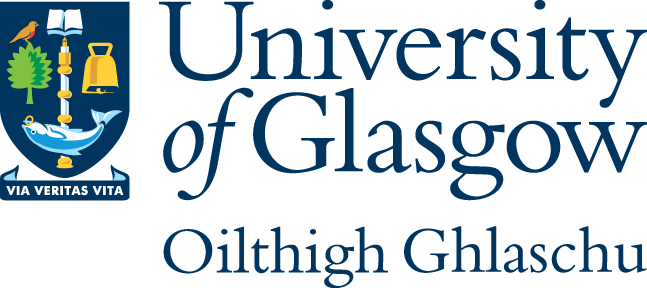Eanraig MacGhille-Bhàin / Henry ‘Fionn’ Whyte
Tha sinn air a bhith a’ toirt sùil nar rannsachadh air mar a tha luchd na Gàidhlig ann an Glaschu sa latha an-diugh a’ dol an sàs sa choimhearsnachd Ghàidhlig sa bhaile. Nam bheachdsa, tha coimhearsnachd na Gàidhlig sa bhaile sa latha an-diugh gu math coltach ris a’ choimhearsnachd Gàidhlig bhon 19mh linn. Gheibh sibh an-diugh farpaisean-ceiste, dealbhan-cluiche, is cuirmean-ciùil (mar na seisean aig Ceòl is Craic), uile tro mheadhan na Gàidhlig. Bhiodh sgeulachdan is ceòl san taigh-chèilidh a’ toirt coimhearsnachd na Gàidhlig san 19mh linn còmhla san aon dòigh.
Rugadh Eanraig MacGhille-Bhàin air eilean Èisteal, ach dh’fhuirich e ann an Glaschu fad a’ mhòr chuid de bheatha. Bha Eanraig air leth phoilitigeach fad a bheatha agus chuir e taic ri croitearan an lùib Còmhstri an Fhearainn. Rinn Eanraig is a bhràthair Iain eadar-theangachadh air Achd nan Croitearan bhon a’ Bheurla chun a’ Ghàidhlig.
Bha Eanraig na bhall sa Chomann Ghàidhealach. Sgrìobh e altan is colbhan air cultar, eachdraidh, is beul-aithris nan Gàidheal mar neach-naidheachd. Cuideachd, chaidh na co-chruinneachaidhean òrain is sgeulachdan the Celtic Lyre, the Celtic Garland, agus Leabhar na Cèilidh a sgrìobhadh leis-san. Tha dìleab agus obair Eanraig a’ sealltainn dè cho mòr is a bha an ùidh aige ann an cultar na Gàidhlig agus dè cho cudromach is a bha e dhasan a bhith ga cumail beò. Cuideachd, bhiodh Eanraig a’ co-cruinneachadh òrain is sgeulachdan traidiseanta agus òrain agus sgeulachdan ùra, is a rinn e cuid aige fhèin.
Tha sinn a’ tuigsinn bho ar rannsachadh gu bheil luchd na Gàidhlig sa bhaile air an sàrachadh nach eil cothroman gu leòr ann a bhith ag èisteachd is a’ cleachdadh na Gàidhlig. Bhon a bhith a’ smaoineachadh air Eanraig MacGhille-Bhàin, ’s dòcha gun urrainnear coimhearsnachd na Gàidhlig a bhrosnachadh agus a thoirt còmhla sa latha an-diugh ann an àitichean gu math coltach ri taigh cèilidh traidiseanta anns am biodh luchd na Gàidhlig a’ gabhail òrain ùra is traidiseanta agus a’ cluinntinn seann sgeulachdan no sgeulachdan ùra.
In our research work, we are studying how Gaelic speakers engage with the Glasgow Gaelic community. In many ways, the Glasgow Gaelic community is similar to the Gaelic community of the late 19th century. Today there are several events such as pub quizzes, plays, and concerts (such as the Ceòl is Craic nights) which bring the community together. However, in the 19th century the community would be brought together via the taigh cèilidh, music and storytelling.
Henry ‘Fionn’ Whyte was a native Gaelic speaker born in Easdale but lived for most of his life in Glasgow. Henry was very politically active throughout his life. He supported the Highland Land Agitation and translated with his brother John the Crofters Holding Act (1886) into Gaelic. He was also an active member of an Comunn Gàidhealach. As a journalist he would often write about Gaelic music, folklore and history. This writing, as well as the collections of Gaelic prose and songs published in the Celtic Lyre, the Celtic Garland, and Leabhar na Cèilidh, demonstrate Henry’s passion for Gaelic culture as well as his understanding that sharing Gaelic song and stories was crucial for sustaining the Gaelic community. Crucially, Henry was not only interested in sharing traditional songs and stories but also interested in new compositions.
Our research tells us that Gaelic speakers in today’s community often are frustrated by a lack of opportunities to get together socially and speak and listen to the language. Reflecting on Henry Whyte and his legacy, it may be that sharing traditional as well as new songs and stories in cèilidh-like spaces for Gaelic has the potential to bring together and inspire today’s Gaelic community.
Image from M.M 1914. “Henry White: ‘Fionn’”, The Celtic Review, Vol. 9, No. 36, pp. 332-336. Accessed: 20.04.2022. Available at: https://www.jstor.org/stable/pdf/30070304.pdf?casa_token=QHxxZSXcI8sAAAAA:xbsl0st1PPp7rFYT5_rs8ISSYIRWSh9cDEppIT5akRiTdP_FB_qWnlj4UYfove1vxR0TBRFHfp98XLq9s3theUw_ScN4UVjXDVIpdKO4SyyGyvjbmrsS
